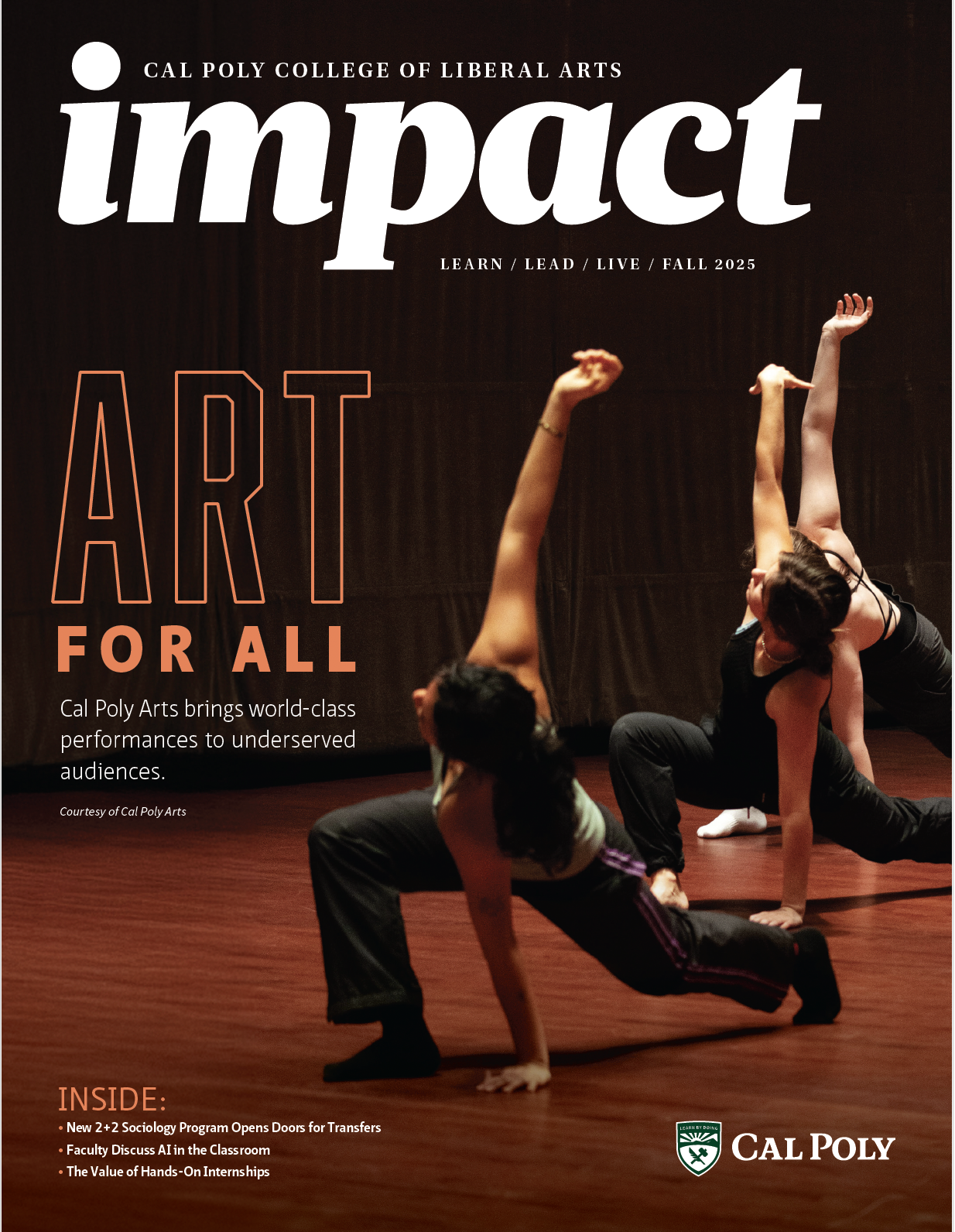Underrepresented Student Network Connects Students to Mentors, Provides Community
In fall 2018, the College of Liberal Arts (CLA) launched the Underrepresented Students Network (USN), a network of students from the CLA who provide peer-to-peer mentorship for underrepresented students across campus to create a more equitable learning environment.

CLA USN mentors
The USN peer mentorship program was created by students in the CLA Student Diversity Committee. These students wanted to see a mentorship program geared toward underrepresented students, made up of students, to help guide them through their transition to Cal Poly and point them to available resources on campus. Students from any major are invited to apply to be matched with a mentor.
“One of my favorite things about this program is that it was student-driven,” said Dr. Jennifer Teramoto Pedrotti, CLA Associate Dean for Diversity and Curriculum. “I think sometimes we are all looking for solutions, but those solutions lie within the people who are right in front of us.”
Mayra Mejia (Graphic Communication, ‘17), who is a current Cal Poly Master of Business Administration candidate, was one of the founding members of USN. She said that as a first-generation student herself, she wished a similar program had been available to her when she was a first-year undergraduate.
“Navigating my way through Cal Poly throughout my undergraduate career was always really challenging, but after you get the hang of things, you learn about your resources,” Mejia said. “We thought USN would be a great way for underrepresented students to feel like they have a support system on campus.”
Students can apply online to get matched with a mentor based on factors like their major, experience, or interests. Additionally, students can choose what type of guidance they would like from mentors, whether it be academic support or community support.
“In being a network of underrepresented students, they might have information about the community in terms of places someone wants to worship, or a place to get the kind of food someone’s used to, or a place to get their hair done,” Pedrotti said. “So, part of it might be academic and focused in that way, but part of it is just being a link to the community.”
In addition to one-on-one mentorship, mentors and mentees participate together in professional development opportunities. This year these included a goal-setting workshop, hearing from a panel of BEACoN research mentors about their work, and getting advice on resumes and LinkedIn from the campus Career Center. All mentors and mentees also have access to Dr. Teramoto Pedrotti if they need additional help.
Ethnic studies and political science senior Rosa Lopez was paired with a mentee who shares both her major and her love for a capella music. Lopez said being a lead mentor has given her both leadership experience and an opportunity to relay her experience at Cal Poly to others. The most important aspect of USN, she said, is the way it fosters a greater sense of community on campus.
“Knowing you have that home in CLA is really important, especially for our incoming students — making them feel welcome and that they belong,” Lopez said.
This sense of community could be essential for the success and wellbeing of students looking for a greater connection to the campus.
“For the students who feel like they still haven’t found a place or how to connect to others on campus, I hope that USN can shed some light and help them feel more at home at Cal Poly,” Mejia said.
